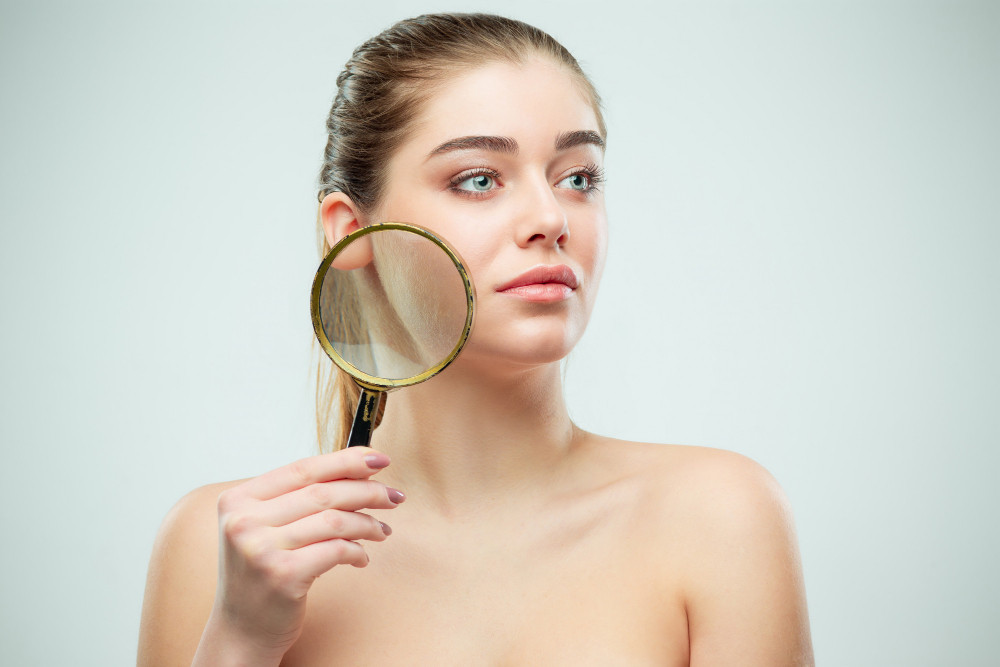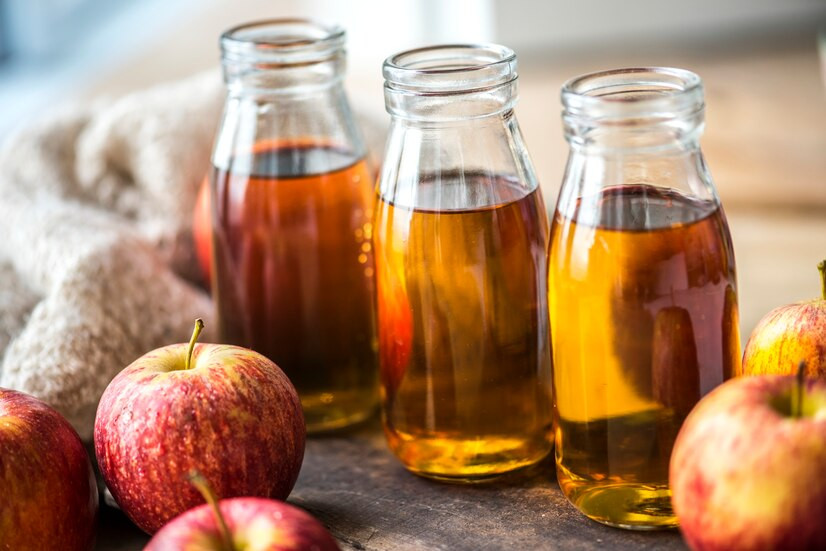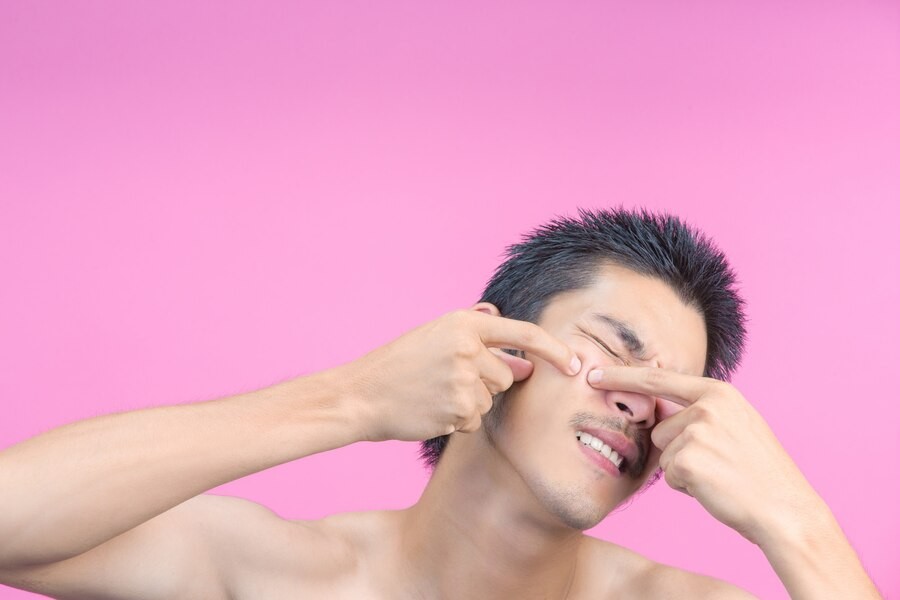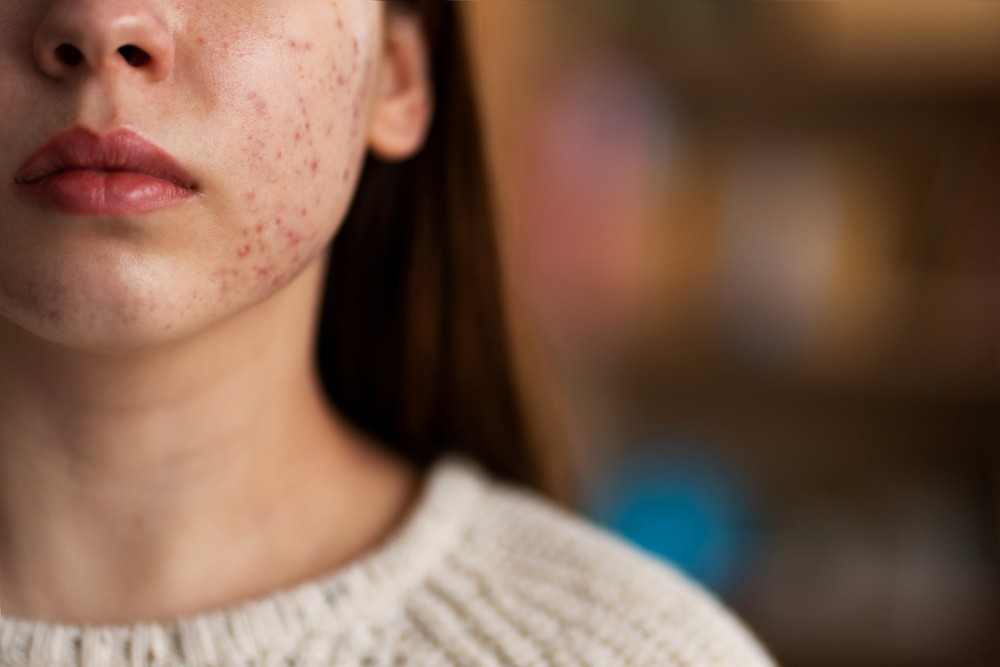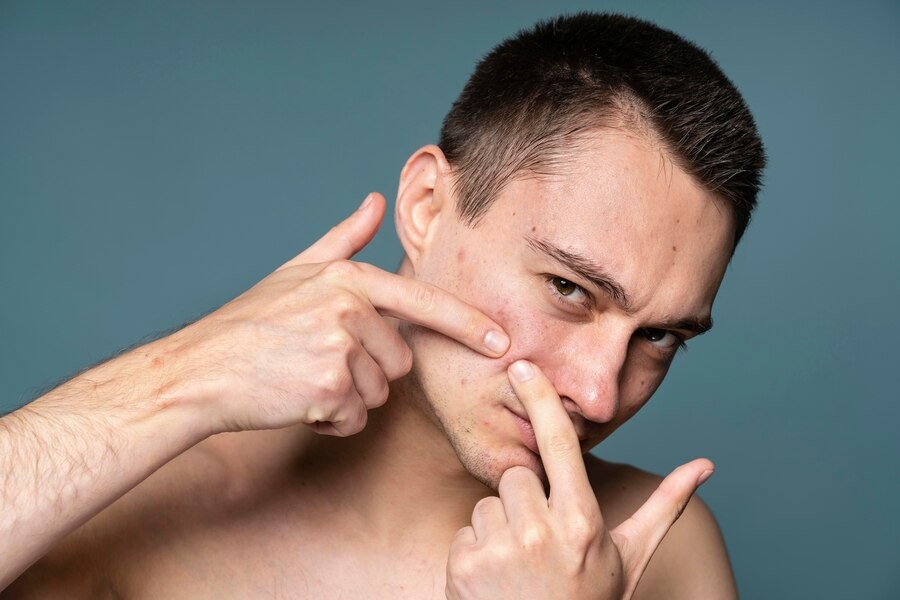Blackheads are a type of acne. There are two types of blackheads: open and closed. Closed blackheads are also called whiteheads. Whiteheads are more difficult to treat than blackheads.
Knowing the causes of whiteheads can help prevent them from forming and reduce the probability that they will appear. Check out the discussion below.
Causes of whiteheads
Whiteheads have the appearance of small bumps on the skin, which can be white or yellow in color. Whiteheads appear when the surrounding skin layer covers the hair follicles or pores, trapping oil and dead skin cells.
Several factors can cause whiteheads to appear, including:
- Increased sebum production can cause oil buildup in the hair follicles
- Abnormal keratin formation causes dead skin cells to become stickier and more difficult to remove from the pores
- Propionibacterium acne bacteria grow in clogged hair follicles, causing inflammation and forming whiteheads
- Hormonal changes, particularly during puberty or the menstrual cycle, can affect sebum production and increase the risk of blackhead formation
- Use of inappropriate cosmetics or skincare products that clog pores
- Exposure to air and environmental pollution raises the risk of blackhead formation
- The habitual, forceful squeezing of whiteheads can damage the follicles, cause inflammation, and worsen the skin condition
How to prevent whiteheads
Preventing the formation of whiteheads is a difficult thing to do. However, there are preventive measures that can reduce the risk of whitehead formation, including:
- Cleanse your face at least twice a day with a mild cleanser. This routine helps remove oil, dirt, and dead skin cells that can clog pores
- Using the right skincare products can help maintain the skin's oil balance and prevent the formation of blackheads
- Using exfoliating products such as toners or facial scrubs that contain salicylic acid or alpha-hydroxy acid (AHA) to help remove dead skin cells and prevent pore clogging
- Choosing products with a non-comedogenic label
- Avoid squeezing pimples or blackheads, which can damage hair follicles, cause inflammation, and even leave scars or dark spots
- Avoid excessive sun exposure and air pollution and use sunscreen to protect skin from UV rays
- Use a moisturizer that suits your skin type to keep your skin moisturized. Dry skin promotes excessive oil production
- Maintain a healthy diet, drink plenty of water, and avoid habits that harm skin health, such as smoking and excessive alcohol consumption
- Routinely wash your hair, especially if you have oily hair
- Avoid touching your face with dirty hands
Usually, whiteheads will disappear on their own within a few days. However, if you continue to have annoying whiteheads, you should see a doctor or a dermatologist to get proper treatment.
If you need medical advice or consultation, you can either visit a doctor or make use of the consultation features that are available in the Ai Care application by downloading the Ai Care application from the App Store or Play Store.
Looking for more tips and health tricks, first aid, and home remedies? Click here!
- Sean Edbert Lim, MBBS
Kristeen Moore (2019). Everything You Need to Know About Whiteheads. Available from: https://www.healthline.com/health/whitehead
Cleveland Clinic (2021). Whiteheads. Available from: https://my.clevelandclinic.org/health/diseases/22039-whiteheads
Medline Plus (2022). Comedones. Available from: https://medlineplus.gov/ency/article/003236.htm
Wendy Wisner (2023). What Is Sebum?. Available from: https://www.health.com/sebum-7967155
Mayo Clinic (2022). Acne. Available from: https://www.mayoclinic.org/diseases-conditions/acne/symptoms-causes/syc-20368047
Laura Schober (2023). What Are Whiteheads?. Available from: https://www.health.com/whiteheads-7965271
Angela Palmer (2022). Noncomedogenic Skin Care Products: Types and Benefits. Available from: https://www.verywellhealth.com/noncomedogenic-15574

